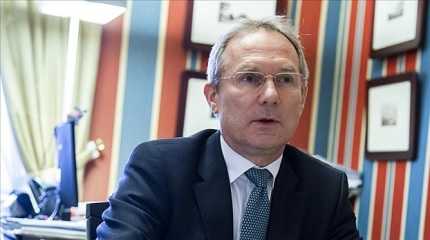
UNITED NATIONS, Feb 18 (APP): Some 1.8 billion people on the planet are threatened by flood risks, the United Nations General Assembly President, Csaba Korosi, warned on Saturday, at a water management event in Tokyo, Japan.
“This is a challenge that we can master with ingenuity and determination,” he said, while calling for science-based solutions and solidarity, as he delivered a keynote speech at the high-level symposium on “Integrated Water Cycle Management in the post-COVID-19 era,” according to a press release issued at UN Headquarters in New York.
In Pakistan, last August’s record-breaking floods killed over 1,700 people and 1.2 million livestock, with 33 million displaced.
In his remarks, the General Assembly president said when the UN’s Sustainable Development Goals (SDGs) were crafted, the full magnitude of climate change impacts through droughts and floods was not yet prominent enough to allow for factoring explicit flood and drought-related indicators into SDG6, the Goal related to water and sanitation.
He compared the current challenge to that of the ill-fated Apollo 13 moon mission that managed to return to Earth after encountering a disastrous mechanical problem. “In 1970, ingenuity and determined action brought the astronauts back to earth alive,” he said, stressing that it will take the same kind of resolve to cope with flood risks.
Besides climate change-induced threats, Korosi pointed out that poor flood protection and management, and reckless land use are also driving disaster risks.
Calling for solutions based on resilience, sustainability and inclusiveness, he stressed the essential need to strengthen transnational alliances, such as the UN Water Convention of 1992, which is managed by the United Nations Economic Commission for Europe (UNECE) and reiterated his calls for a global water information system.
In five weeks, the General Assembly will convene the landmark UN Water Conference, with Japan co-chairing the summit’s interactive dialogue on climate, resilience, and environment, he said, encouraging the Japanese leadership in these areas.
He expressed hope that the Water Conference will produce “the commitments that will enable us to catalyze the global water information system, the early warnings for all initiative and the strengthened science partnerships we all need to face what is coming.”
In his video message, Li Junhua, Under-Secretary-General for Economic and Social Affairs, said that a main outcome of the Water Conference is the Water Action Agenda, a platform where action-oriented voluntary commitments are being collected.
“If we are serious about changing the game on water and flood management, I am counting on you, dear colleagues, to bring your most imaginative and forward-thinking commitments to the Conference in March,” he said.




